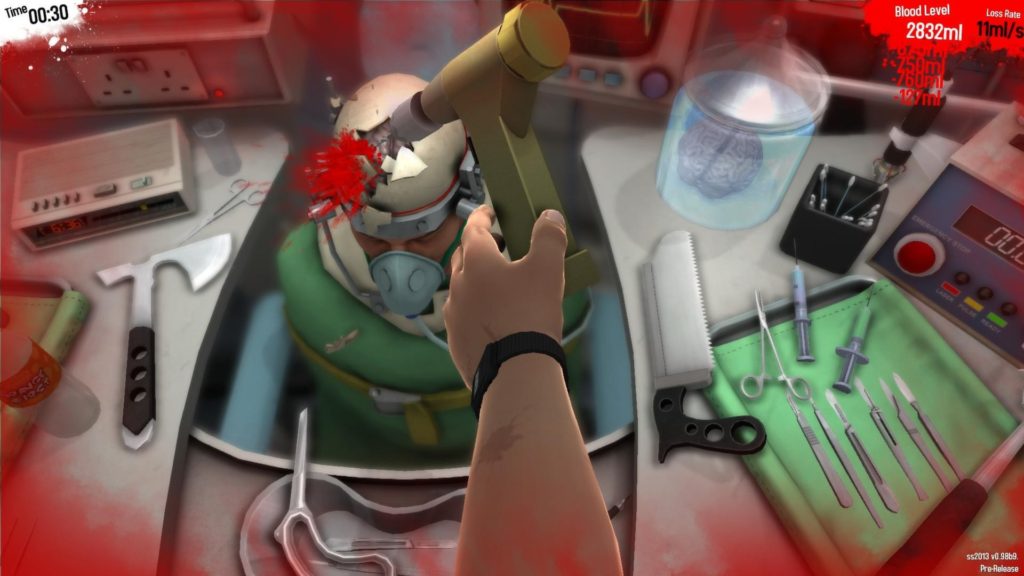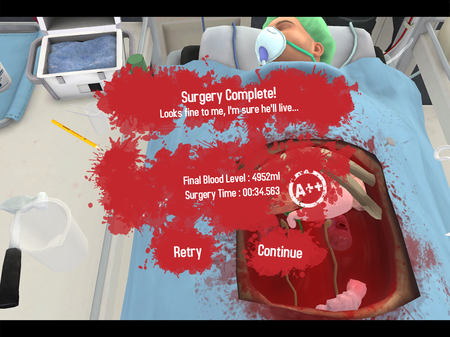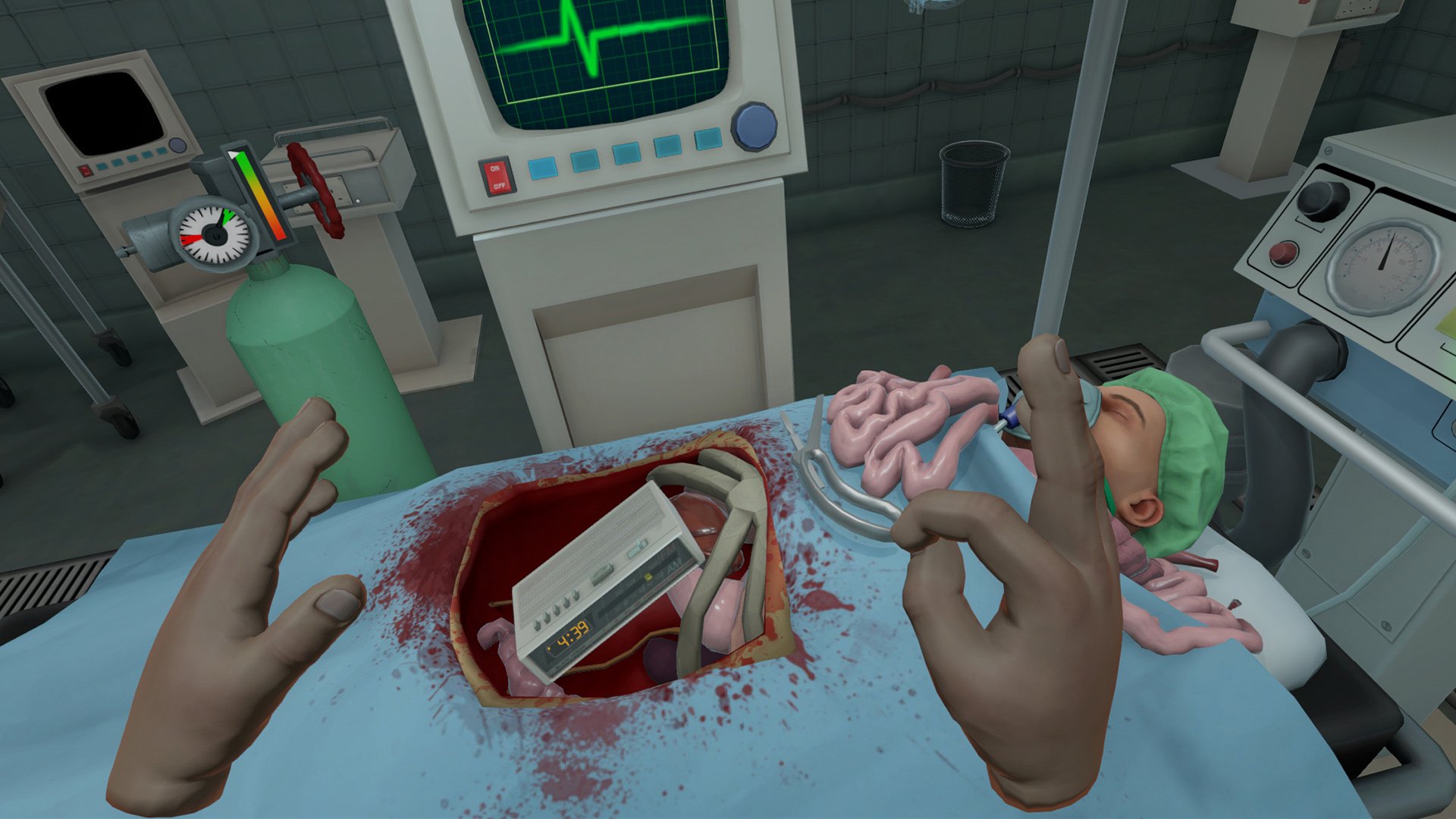I honestly didn’t realize how many kinds of difficult games existed until our Difficult Game Session. It’s not that I didn’t know per say, I just never connected the dots. From games with realistic mechanics and hard enemies (Bloodborne + it’s stamina bar) to nearly impossible puzzle games like The World’s Hardest Game, difficult games come in a plethora of genres and forms. However, the one I found most exciting to write about was the beloved Surgeon Simulator. Surgeon Simulator‘s difficulty comes from one thing that’s quite different from most other games: shitty mechanics. Excuse my choice of words, but I feel that is one of the best descriptors for it. The controls for this game are so impossible, it makes it one of the most frustrating games to play.

So why is that so many people love the game and continue to put themselves through those hellish mechanics? It goes back to main motivator of difficult games: the satisfaction of success. Though the causes may be different – bad mechanics, hard bosses, hard levels, etc. – they all motivate a player to keep trying so that they can feel the joy of winning. While difficult games can still have story and adventure, I find that a major mechanic of difficult games is the concept of success. You’re fighting towards something: you want to get a better scores, you want to beat the game that’s said to be frustratingly hard. Different games choose different methods, and Surgeon Simulator’s route was to make the controls frustratingly hard.

Surgeon Simulator has become an extremely popular, with even a sequel, despite it’s rather silly mechanics. The arms flail around everywhere and you have next to no control of it. Your goal is almost to just keep the patient living rather than having a successful surgery. Just do good enough that the patient doesn’t bleed out, and you win. However, the addition of scoring and grading pushes people even further as they redo the same levels over again. It’s truly fascinating the power that scores have on us as a society, and so many games have learned to lean into that.

I feel that difficult games can teach people to push past their frustrations, and Surgeon Simulator is one of many that does so.


I’ve often thought about, to avoid a choice word, mechanics that are frustrating. I think it’s interesting to think about frustrating mechanics as an obstacle: instead of a physical obstacle in the game world, like a boss or an enemy, the player is the obstacle and the only way to overcome this obstacle is to get good at the game. I feel like this creates a much more existential view of difficulty in games compared to a game like Dark Souls, where the game is hard because of other reasons. It’s interesting to think that people are willing to pour hours into a game just because they want to get better at it, and frustrating mechanics may be one of the better ways to accomplish this.
Your post made me wonder about the difference between intentionally bad mechanics and unintentionally bad mechanics, and the different joys that come about from successes despite these setbacks. You are right that it feels so satisfying to beat this game, but why is this feeling not present in games which are unintentionally bad? What sets this game apart from those? That’s how I feel at least (from playing bad games which I did not feel like giving my time to).
I like your point about scores having a large impact on us in society and how Surgeon Simulator takes advantage of that. Even if many things go wrong during the game’s mock surgery, as long as a player receives a grade they enjoy, none of that matters. I wonder if this system changes how people approach the game. Do we no longer care about doing a great job while playing, or do we enjoy the process more because we know in the end we’ll get a grade validating our skills?
Your post inspires questions about why difficult mechanics are incorporated for me. In the case of the Surgeon Simulator, I feel like there could be a case made about how the game plays on an intrinsic fear to operate on sophisticated matters, where we would always worry about the shaking of our hands and not having control over our body.